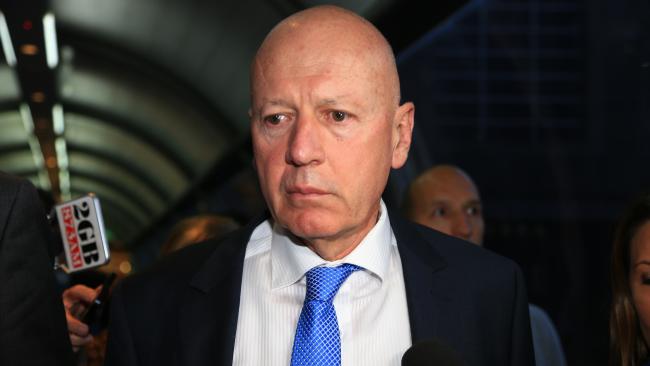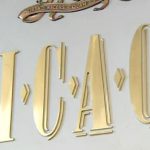
 The NSW corruption watchdog ICAC refused to investigate an official complaint about its organisation leaking to The Sydney Morning Herald.
The NSW corruption watchdog ICAC refused to investigate an official complaint about its organisation leaking to The Sydney Morning Herald.
Former Liberal NSW energy and resources minister Chris Hartcher has sent a letter of complaint to ICAC inspector David Levine calling for former commissioner David Ipp’s conduct to be investigated after he refused to investigate the disclosure of information to The Sydney Morning Herald.
Mr Hartcher was forced to resign from his senior ministry position and leave a career in politics after ICAC discovered he was behind an illegal scheme to funnel political donations from property developers to the Liberal Party ahead of the 2011 election.
When ICAC raided his home and offices in December 2013, the media was tipped off beforehand and filmed the dramatic scenes.
Mr Hartcher was then surprised to learn he would be subject to two public inquiries by reading The Sydney Morning Herald — information he had not been provided by ICAC.
“I am concerned that the only way the Herald could possess such information is an authorised disclosure by your office,” Mr Hartcher said in an official complaint to Mr Ipp. “I request this be immediately investigated and a report be given to me.”
In the correspondence, obtained by The Australian, Mr Ipp replied that he would not be investigating whether ICAC was leaking to the media.
“I have reviewed the article in question and do not agree with your suggestion that the information in the article could have been obtained only through an unauthorised disclosure by the commission,” he said.
“Firstly, statements are made in this article … that are not accurate. This means that it is unlikely that the information was obtained from an informed and reliable source.”
Mr Ipp wrote that the commission investigates matters by interviewing witnesses, conducting compulsory examinations and briefing counsel to appear at forthcoming matters.
He said: “It is unfortunately inevitable that information about the commission’s activities and intentions becomes known to persons outside the commission.”
In his complaint about the matter, Mr Hartcher said The Sydney Morning Herald article had proved to be correct.
“I had received no advice nor had anyone else to my knowledge of the two proposed inquiries. Mr Ipp’s letter is wrong,” he said.
“My allegation is that Mr Ipp has failed to properly investigate, or neglected to properly investigate, what is clearly a deliberate leak from the ICAC designed to be prejudicial to me. Mr Ipp’s conduct requires investigation.”
Mr Ipp yesterday maintained his position that much of the information in the article “was wrong” and said there was no evidence of Independent Commission Against Corruption leaks to The Sydney Morning Herald.
Australian professor of journalism John Henningham said leaks from a corruption watchdog were akin to a supreme court leaking, which he said would be “unimaginable”.
“Judicial organisations, you hope, could work according to higher principles and we should be able to trust them to do their work effectively and without stepping outside the boundaries,” he said.
Given Fairfax had been the main beneficiary of leaks, Mr Henningham questioned how it would cover ICAC in the future.
“It raises the question whether organisations receiving leaks are as robust in their criticism or evaluation of ICAC as they could be or should be,” he added.
“I’d like to think a principled journalist would not let leaks affect their future reporting but journalists are human and we know with political journalists that some are more friendly to particular politicians. In return for being fed leaks, they are kind to their source.”
by: SHARRI MARKSON MEDIA EDITOR
The Australian; November 02, 2015
(WTF) Used by Permission
